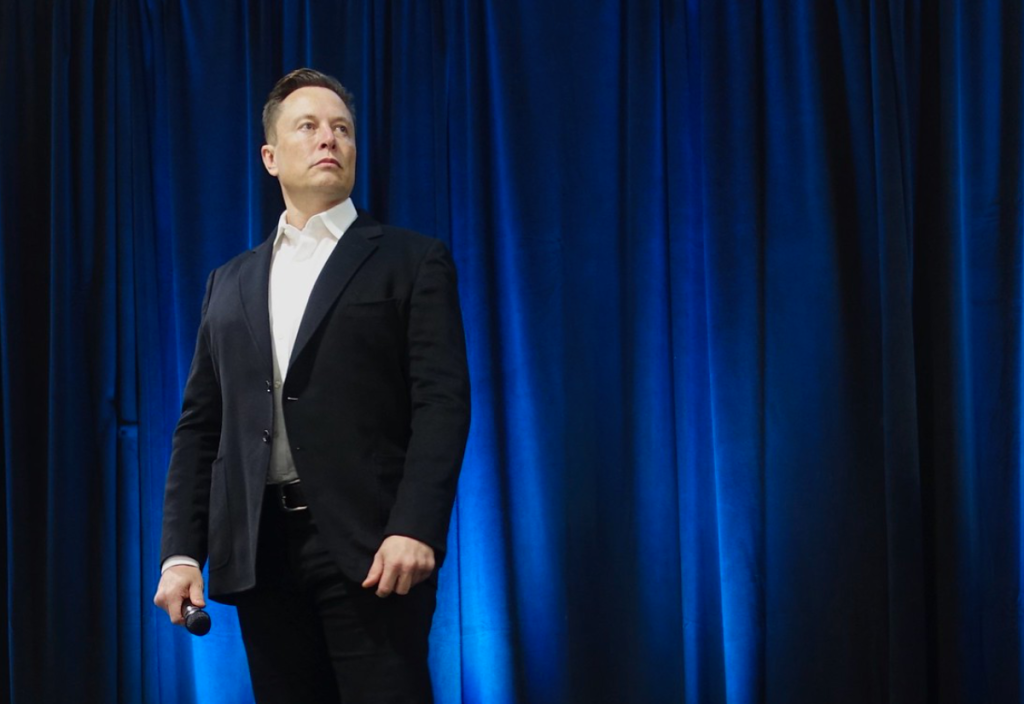Former United States President Donald Trump’s bid for a second term in the White House will doubtless prompt fresh efforts to understand and to explain what drives his divisive and destructive political personality.
Most analyses of Trump focus on his narcissistic and often infantile personality, his contempt for truth and for the conventions of presidential office, his belligerent vulgarity, and his refusal to accept electoral defeat even as a mob of his violent followers stormed the US Capitol.
Trump is an obviously troubling figure given the strong, if possibly wavering, support he still commands inside the Republican Party. So perhaps it is time to try to explain the man who wants to be the 47th US President.
Trump is primarily a throwback to, or a descendant of, the counter-Enlightenment forces who resisted the transformational intellectual advances of the Enlightenment throughout the 17th and 18th centuries.
This may seem a strange claim because the US itself is a product of the Enlightenment. Its intellectual and political values were shaped and evolved under the influence of rationalist and empiricist Enlightenment thought. Trump is seeking to overturn that world-changing thought and to lead the US back to the Dark Ages where he imagines he can realise his egoistic ambition to Make America Great Again.
Most attempts to understand Trump and his agenda focus on his psychology and disposition. But the counter-Enlightenment tradition should be considered at least as important. It may be that the two views interact and reinforce each other, but the counter-Enlightenment preceded psychological analysis and arguably deserves serious and equal consideration.
My guides through this dense thicket are two works by the great British philosopher Isaiah Berlin. The first is the essay entitled ‘The Counter Enlightenment’ in Berlin’s 1981 book Against the Current; the second is his 2003 book entitled Freedom and its Betrayal. Both reflect Berlin’s deep interest in the counter-Enlightenment and its major thinkers, especially Joseph de Maistre (1753-1821), who Berlin calls, “One of the darkest forms of the fight against the Enlightenment”.
Berlin notes that the significance of the Enlightenment was that it proclaimed the autonomy of reason and scientific method based on observation. It rejected the authority of faith, revelation and non-rational sources of knowledge. It saw the development of arts and sciences as the most powerful weapons to combat ignorance, superstation, fanaticism, oppression and barbarism.
Enlightenment figures resisted arbitrary authoritarian rule and urged political systems based on natural rights and democracy. The Enlightenment made the human person sovereign, displacing the primacy of God, Popes and arbitrary tyrants.
The counter-Enlightenment was, in Berlin’s words, “an open declaration of war on the very heart of the rational and experimental method”. Berlin approvingly quotes a 19th-century French critic who called the hostile de Maitre “a fierce absolutist, a furious theocrat . . . apostle of a monstrous trinity composed of Pope, King and Hangman, always and everywhere the champion of the hardest, narrowest and most inflexible dogmatism . . .”.
A striking feature of Trump’s words and deeds in and out of office are how clearly and cleanly they dovetail with counter-Enlightenment thought and how close they seem to match the sentiments of de Maistre and other counter-Enlightenment figures.
Four key elements of Trump’s thought particularly demonstrate the former President’s counter-Enlightenment mindset. They are his views – and relevant policies – on human nature, reason and scientific method, truth, and the role of violence in social and political rule.
A key Enlightenment doctrine, Berlin writes, is the belief that humans are born either innocent and good or morally neutral, malleable by education or environment, and capable of indefinite improvement. De Maistre and his sympathisers felt that humans were by nature evil, violent and self-destructive, and found freedom and peace only under repressive authoritarian rule.
Trump, like other counter-Enlightenment figures, has consistently shown himself to have a bleak view of human nature. His words and deeds and policies reflect unerringly his assumption that humans respond most readily to belligerence, threats, and appeals to baser instincts like greed, anger, envy, fear and the bloated nationalism implicit in his Make America Great Again slogan. It is a pessimistic and reactionary view of human nature and it implies the strong preference for authoritarian rule that is at the heart of Trump’s politics.
A striking feature of Trump’s words and deeds in and out of office are how clearly and cleanly they dovetail with counter-Enlightenment thought…
Counter-Enlightenment figures rejected out of hand the Enlightenment doctrine that reason and scientific method were key prerequisites for the advancement of human wisdom, virtue and happiness. Berlin notes that the counter-Enlightenment philosopher J.G. Hamann accused rationalism and scientism of “using analysis to distort reality”. As Berlin notes, the counter-Enlightenment saw reason as “the thinnest of walls against the raging seas of violent emotion”, and he quotes J.G. Herder’s angry protest: “I am not here to think, but to be, feel, live”.
Again Trump emerges as a spiritual descendant of de Maistre, Hamann, Herder and others. As President, his aides noted that he repeatedly rejected analysis and expert advice in favour of his own faith, instinct and intuition. White House staff despaired trying to prepare position papers and advice for Trump, declaring that his attention span was minimal and that, despite his ignorance, he preferred to trust in his own personal feelings about policies, people and issues.
Ignoring advice from his world renowned chief medical advisor, Dr Antony Fauci, Trump urged Americans to consume medications that were ineffective against the Covid virus killing tens of thousands of Americans. He reversed or rolled back a slew of laws designed to manage climate change and environmental degradation. For Trump, as for the disciples of the counter- Enlightenment, expert scientific advice distorted privately intuited reality and was rejected.
Closely related to his rejection of scientific advice is Trump’s rejection of any notion of truth. Confronted with facts that do not suit him, Trump simply declares them ‘fake news’ cooked up by the media or enemies to damage him. His remorseless accusations of ‘fake news’ prompted some American observers to argue that the country had entered the ‘post-truth’ world.
Trump’s groundless claim that the presidential election had been rigged and stolen from him was perhaps the most egregious of his ‘fake news’ claims. It led to the shocking January 6, 2021, attack on the US Capitol by Trump supporters while the outgoing President looked on, apparently refusing to order an end to the rampage, as he sought frantically to hold onto power.
According to the Washington Post fact checker, team Trump made 492 suspect claims in the first 100 days in office and accumulated 30,575 untruths during his presidency. These striking numbers alone show Trump’s embrace of the counter-Enlightenment doctrine that everything rests on faith, not facts. As Berlin says of the counter-Enlightenment thinkers: “… faith is as basic an organ of acquaintance with reality as the senses”.
No less striking is Trump’s debt to the counter-Enlightenment for his brutal view on political violence. In fact it may be the issue on which Trump is closest to the fanatical de Maistre, who, Berlin notes, held that all social order ultimately rests upon one man: the executioner.
In the last few months of his presidency, Trump ended a 17-year moratorium and approved no less than 13 federal executions including five in the run-up to President Biden’s inauguration. No president in 120 years had overseen so many executions. Following de Maistre, Trump accepts that the executioner, flanked by Pope and King, was the source of order, peace and society. He is also on the record as saying torture “absolutely works”.
Like de Maistre and others, Trump’s policy positions seem to be forged in the white hot atmosphere of hatred, grievance and violent emotion that defined the counter-Enlightenment. Among other things, he was a leading proponent of the phoney ‘birther’ conspiracy that claimed President Barack Obama was not born in the US. He was widely condemned as a barely concealed racist and his signature immigration policy was a limited border wall between the United States and Mexico.
His foreign policy combined isolationism with futile attempts to court Vladimir Putin and Kim Jong-un against the advice of expert advisors. His domestic policies reflected consistently right-wing conservative attitudes that favoured rich Americans and showed little concern for those suffering from poverty, crippling health costs, and sexual and gender discrimination. His presidency divided but failed to advance America, and his 2020 re-election bid failed because he failed the US.
The question now is: Can this paladin of the counter-Enlightenment recapture the White House ? Certainly, Trump has money and a large cohort of moronic Republican supporters who share his counter-Enlightenment views and who continue to terrify the traditional Republican Party.
Given the deep divisions in the US, only a fool would count him out yet. But there are signs that he might have reached, and be passing, the high water mark of his influence.
His recent speech announcing his intention to run again for the presidency was greeted with derision and contempt by major US media outlets. The Murdoch empire, once his champion, has dumped him. Senior GOP figures are saying that the party can win the next election, but not with Trump as its White House standard bearer – and a slew of hopefuls are making ready to challenge his planned candidacy.
Moreover the US media is insisting that Trump’s early announcement is an effort to shield himself from ongoing criminal investigations into his conduct, including his mishandling of classified documents that he removed from the White House.
A special counsel has been appointed to oversee investigations into his actions. Former Republican house Speaker Paul Ryan has declared that the recent mid-term US elections show the GOP can win back the White House but not with Trump as its leader. Former Vice-President Mike Pence has declared that voters will have better choices than Trump in 2024.
And here perhaps we do well to return to Isaiah Berlin. He reminds us that de Maistre’s views reflect “the absolute substance of the anti-democratic talk of our day”. He writes: “In place of the ideals of progress, liberty, perfection, he preached the sacredness of the past, the virtue and the necessity, indeed, of complete subjection because of the incurably bad and corrupt nature of man.”
Trump manifestly shares this sort of view, reinforced by his out-of-control ego and sense of grievance. It is certainly true that some counter-Enlightenment arguments raise serious questions about the Enlightenment’s faith in human progress. But, in Trump’s rough hands, it is a recipe for human submission rather than liberation and democracy.
If you wish to republish this original article, please attribute to Rationale. Click here to find out more about republishing under Creative Commons.
Photo by History in HD on Unsplash.














